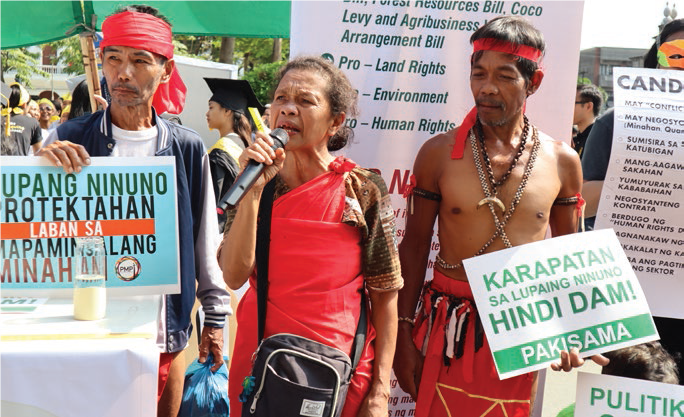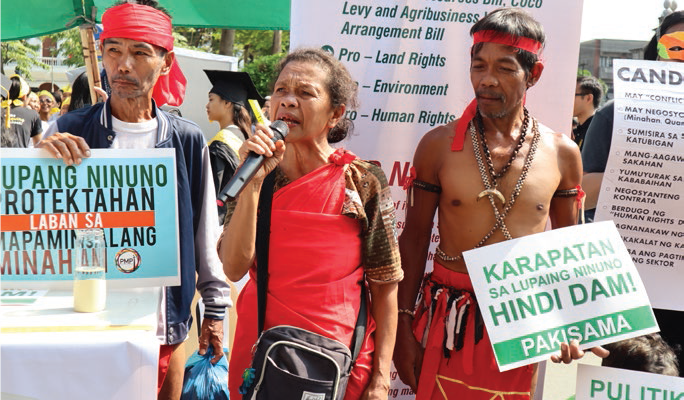In the latest issue of the RICS Land Journal, the Land Matrix explains how large-scale land acquisitions (LSLAs) can have substantial global impacts, and why the availability of reliable, up-to-date data is crucial to understand the context in which they take place to improve evidence-based decision-making.
What’s the big deal?
Authors: Cecilia Coccia, Angela Harding and Danya-Zee Pedra
Soaring food and fuel prices and the instability of global financial markets have prompted agri-businesses, investment banks, and food- and energy-hungry nations to secure resources in countries where land is available, or is made available, for investment. Given that access to land is closely linked to food security, poverty alleviation, sustainable livelihoods and rural transformation, and that large-scale land acquisitions (LSLAs) can hinder such access, it’s important to monitor these deals.
However, the controversial context and the complexities of LSLAs, as well as their potential to create conflict, mean that deals usually take place behind closed doors, limiting access to data and information on tenure. In addition, weak and deficient land and economic governance practices – largely related to this lack of information and transparency – often create conditions that fail the rural poor and disadvantage local land users in decisions on land and investment. This can weaken their position in the process, and may mean they are not being fairly compensated.
‘The global impacts of LSLAs are substantial, and while potentially positive impacts are relevant, including increased investment in developing economies … negative impacts are a serious concern, and generally impact the poor most directly,’ explains Markus Giger, chair of the Land Matrix Initiative (LMI). Such negative impacts can include displacement of rural people and dispossession of land and other resources, biodiversity decline, forest loss and increasing marginalisation of local farmers in land and commodity markets.

Demonstration against the Kaliwa Dam in the Philippines. LMI was among the agencies that compiled
advocacy maps for indigenous people to show how their area would be affected by the project
Transparency and accountability
Availability of reliable, up-to-date data is crucial to understand the context in which LSLAs take place and to improve evidence-based decision-making. The Land Matrix was therefore established in 2009 to keep track of these deals in a systematic way, and make the data open and easily accessible. A partnership of nine global and regional organisations, the Land Matrix is an independent monitoring initiative that promotes transparency and accountability in decisions over LSLAs in low- and middle-income countries around the world.
By collecting and sharing data about land deals on its open-access platform, the initiative aims to stimulate debate on the trends and impacts of such acquisitions and, in so doing, contribute to strengthening the positions of more vulnerable stakeholders in the political and administrative processes that govern access to land.
Transparency on compensation and benefits promised and received, as well as other variables such as displacement and community impact, is generally very low, even though it is increasingly accepted that data ecosystems – infrastructure, analytics and applications used to collect and analyse data on land and investment – are necessary for more inclusive, open and rigorous monitoring of land governance. In the land sector, data is scattered, often focusing only on certain markets and tenure regimes, and is politically sensitive.
The first version of the Land Matrix database, launched in 2012, gave an overview of large-scale agricultural investments. It has since evolved to include the Global Observatory, which illustrates the magnitude of LSLAs on an international scale; country-specific data provides a critical regional lens on these activities. Using the online platform, you can filter the deals by negotiation and implementation status, including intended, concluded, and failed attempts to acquire land through purchase, lease or concession. Deals may also be filtered by proposed uses, which range from agricultural production, timber extraction, carbon trading, industry, and renewable energy production to conservation and tourism.
Decentralisation is fundamental for fostering wide participation in the collection and sharing of information about LSLAs, contributing to open development and greater public involvement in critical decisions that affect land users. By piloting and supporting national land observatories (NLOs), the initiative was able not only to launch activities at country level but also to lay the foundation for continuing information sharing and dialogue in existing, multi-stakeholder platforms and to influence policy at national level.
Multi-stakeholder platforms also bridge the gap between those contributing to research on LSLAs, including researchers, civil society organisations, non-governmental organisations, and community leaders, and those that will use data to inform policy, such as governments. Bringing these parties together in pursuit of a common objective is a constructive way to connect them and enable better decisions on land and land investments.
Nevertheless, collecting information about land deals remains difficult. The information is hard to find, and even harder to confirm through independent sources. In addition, the opaque nature of land acquisitions imposes certain limits on the data-gathering process. Although private and governmental investors are beginning to share more information on land deals, transparency is still not the norm, and we continue to face a major challenge in complementing global data with local data.
Some ways we can overcome this include:
- building stronger, more sustainable and more effective connections among the various stakeholders
- using open land data to better understand the impact of land acquisition and inform intervention management
- involving existing local landholders in negotiations over land deals based on free, prior and informed consent
- leveraging open land data on land deals to advance community-based tenure through lobbying, national legislation, administrative and institutional capacity building, and implementation of inclusive and sustainable land tenure and policy
- maximising existing reference points such as the Sustainable Development Goals, the Voluntary Guidelines on responsible Governance of Tenure of land, Responsible Investment in Agricultural and Food Systems, and the Framework and Guidelines on Land Policy in Africa
- monitoring land deals, scrutinising government contracting practices, and fostering public participation in land contract negotiations through advocacy, which are some of the core activities of the Land Matrix’s NLOs, particularly with regard to the processes and dynamics of land acquisitions on the ground.




Comments are closed